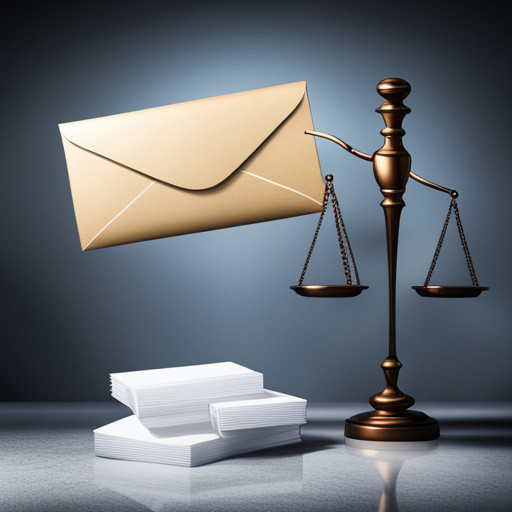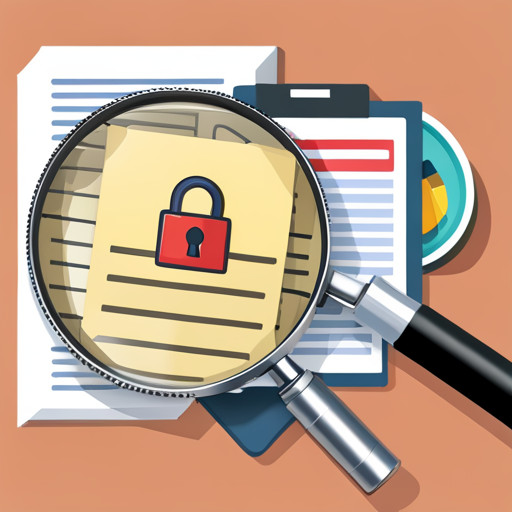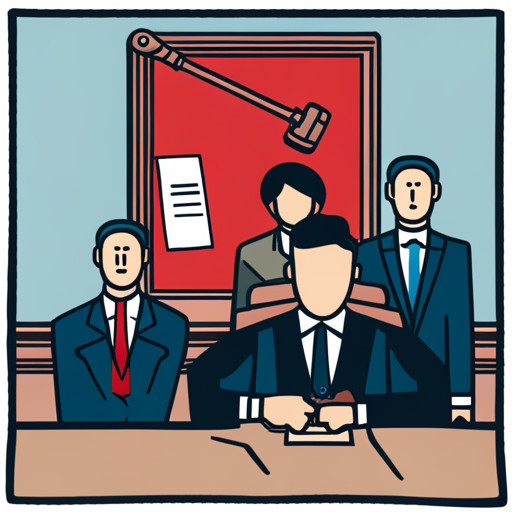How a Confidentiality Agreement Affects Your Personal Injury Settlement
Approximately 95% of personal injury cases are settled pretrial, often subject to confidentiality agreements. These agreements, while safeguarding reputations and private information, impose restrictions on disclosure.

This article investigates the impact of confidentiality agreements on personal injury settlements, exploring their role in negotiation, benefits for injury victims, legal repercussions of violations, and influence on future legal claims.
Key Takeaways
- Confidentiality clauses in injury settlements are important for protecting the parties involved from discussing the details of the claim and settlement.
- These clauses are often requested by defendants and insurers to protect their business reputation and prevent bad publicity.
- Injured parties may also request confidentiality to keep significant settlements private and avoid embarrassment.
- Confidentiality clauses can have an impact on a company's reputation and goodwill by preventing settlements from implying wrongdoing and avoiding bad public perception.
Understanding Confidentiality Agreements in Personal Injury Settlements

Understanding confidentiality agreements in personal injury settlements requires a comprehensive grasp of their role. This includes prohibiting parties from disclosing details of the claim and settlement, potentially affecting the injured party's tax liability, and potentially leading to severe penalties in case of breach.
These agreements play an essential part in protecting sensitive information. This includes the details of the injuries, the settlement amount, and the nature of the accident.
However, the ethical implications of confidentiality agreements are a subject of debate. Critics argue they may shield wrongdoers and prevent exposure of public safety issues. Proponents, on the other hand, contend that they protect the reputation and financial stability of businesses and individuals, while ensuring the privacy of the injured party.
The Role of Confidentiality Agreements in Settlement Negotiations

In the realm of dispute resolution, the role of non-disclosure clauses in settlement negotiations is critical, often influencing the final terms and conditions of the accord. These clauses have profound ethical implications, particularly in personal injury settlements. Defendants may use such agreements to protect their reputation, but there is potential for abuse, suppressing crucial information about systemic issues.
| Factors | Advantages | Disadvantages |
|---|---|---|
| Reputation Protection | Minimizes reputation damage | Potential for abuse by defendants |
| Systemic Issue Suppression | Avoids similar claims | Suppresses crucial public safety information |
| Public Perception | Prevents negative publicity | Creates ethical dilemmas |
These implications raise questions about the balance between individual privacy rights and public interest. Therefore, it becomes crucial to scrutinize non-disclosure clauses, ensuring they do not compromise transparency and public safety.
Why Defendants Push for Confidentiality Agreements

Defendants often advocate for non-disclosure clauses in personal injury settlements to safeguard their business reputation and mitigate potential financial risks. This approach, while often strategic, can present ethical concerns.
1. Negotiating Terms - Defendants may negotiate the terms of a confidentiality clause to define what information can or cannot be disclosed, thus maintaining control over potentially damaging information.
2. Defensive Tactic - Such clauses can act as a defensive tactic, discouraging future claims by keeping settlement amounts confidential, thereby protecting the company's financial health.
3. Ethical Concerns - While effective for the defending party, non-disclosure clauses can raise ethical issues. By preventing public knowledge of negligent or wrongful actions, these agreements may inadvertently shield harmful behaviour, raising questions about the balance between individual rights and public safety.
Controversies Surrounding Confidentiality Clauses

Controversies surrounding non-disclosure clauses in injury settlements often arise due to the perceived imbalance between the protection of company interests and the public's right to information. Critics argue that such clauses, while preserving corporate reputation, might inadvertently shield negligent practices and contribute to potential cover ups, thus raising concerns about public safety.
It is posited that repeated injuries or damages caused by a single entity should be disclosed to the public to prevent similar incidents in the future. Confidentiality clauses are seen as a deterrent to this transparency. However, it is also argued that the removal of these clauses may lead to unfair damage to a company's reputation based on isolated incidents.
Therefore, finding a balance between these conflicting interests remains a complex legal challenge.
The Benefits of Confidentiality Agreements for Injury Victims

Benefits to the injured parties from non-disclosure clauses in settlement cases, while often overlooked, are substantial and multifaceted. These benefits are particularly evident in three key areas:
1. Overcoming the stigma: Confidentiality agreements empower injury victims by preserving their dignity and shielding them from potentially damaging public scrutiny. This enables them to focus on their recovery and rehabilitation without additional stressors.
2. Balancing privacy and transparency: Confidentiality clauses serve to protect the private lives of injured parties while still holding responsible parties accountable.
3. Ethical considerations: Confidentiality agreements in personal injury settlements can help balance the need for privacy with the public's right to information. This delicate equilibrium supports the ethical administration of justice while ensuring respect for personal boundaries.
Thus, non-disclosure clauses can serve as powerful tools for injury victims navigating the complex world of personal injury settlements.
The Influence of Confidentiality Clauses on Business Reputation

Injury claims, particularly those involving businesses, often necessitate the inclusion of non-disclosure clauses to safeguard the reputation and goodwill of the company involved. The role of confidentiality agreements in preserving business relationships is paramount, as they prevent the dissemination of potentially harmful information.
These agreements limit the disclosure of details regarding the claim and its resolution, thereby preventing potential damage to the business's public image. However, the ethical implications of confidentiality clauses cannot be overlooked.
While these clauses are seen as necessary to protect businesses, they can also be perceived as a means to hide misconduct or negligence. Consequently, these implications warrant careful consideration and a balanced approach to ensure fair and transparent procedures in resolving injury claims.
How Confidentiality Clauses Can Limit Negative Publicity

Mitigating negative publicity is a significant consideration in the imposition of non-disclosure clauses in injury settlements, as these provisions can restrict the dissemination of potentially damaging information about a company or individual. Confidentiality in injury settlements upholds the reputation and financial stability of the implicated party, while also keeping the details of the settlement private.
On the other hand, the ethical implications of confidentiality clauses in personal injury cases cannot be overlooked. Confidentiality clauses may conceal pertinent information about potentially harmful practices that could safeguard public health or safety. They can hinder the pursuit of justice by preventing future plaintiffs from accessing valuable precedent information. Confidentiality clauses in injury settlements can also potentially create a power imbalance between the injured party and the defendant, obstructing the transparency that should be inherent in legal proceedings.
The Role of Confidentiality Agreements in Medical Privacy

Preservation of medical privacy is a critical aspect of non-disclosure provisions in injury settlements, ensuring that sensitive health information remains undisclosed to the public. It is pertinent to understand the importance of patient consent in this context. Confidentiality agreements, by promoting patient consent, ensure that medical data is not disclosed without the explicit approval of the patient involved. Ethical considerations in medical privacy dictate the necessity of such non-disclosure agreements.
| Ethical Considerations | Importance of Patient Consent |
| Uphold patient dignity | Ensures informed decision-making |
| Maintain trust in medical institutions | Protects from unwanted disclosure |
| Prevent misuse of sensitive information | Enhances patient control over information |
| Promote patient autonomy | Reinforces patient rights |
Thus, confidentiality agreements in medical settings help safeguard patient rights, uphold ethical norms, and foster trust in healthcare establishments.
The Impact of Confidentiality Agreements on Settlement Amounts

Having considered the role of confidentiality agreements in protecting medical privacy, the focus now shifts to the impact of such agreements on settlement amounts in personal injury cases.
1. Factors influencing the inclusion of confidentiality agreements in personal injury settlements are manifold. These typically include the desire of the defendant to maintain business reputation and avoid similar claims, and the injured party's interest in preserving privacy and avoiding unwanted attention.
2. Yet, confidentiality agreements are not without potential drawbacks. These could limit the injured party's ability to discuss their experience, possibly hindering others from learning about potential hazards.
3. Furthermore, they might also impact the perceived fairness of the settlement, as the details, including the amount, are kept from public scrutiny, potentially skewing the perception of what constitutes a just settlement.
Defining Confidential Information in a Non-Disclosure Agreement

In the context of non-disclosure contracts within personal injury cases, defining the scope of confidential information is a crucial step that requires careful deliberation. The importance of clear definitions in confidentiality agreements cannot be overstated, as they provide a concrete framework that guides the conduct of involved parties.
Definitions must be comprehensive, covering all aspects such as settlement amounts, details of injuries, and any other sensitive information. Notably, certain information may be excluded if it is already a matter of public record or knowledge.
The potential risks of breaching a confidentiality agreement are significant and may include financial penalties, repayment of the settlement, or even legal action. Thus, a well-structured agreement is instrumental in ensuring both parties uphold their obligations.
Exclusions Typically Found in Confidentiality Clauses

Transitioning from the definition of confidential information in non-disclosure agreements, this discourse shifts towards the exploration of exclusions typically found in confidentiality clauses. These exclusions form an integral part of the agreement, establishing the boundaries of what is considered confidential information.
1. Generally, information which is already in the public domain or becomes publicly available through no fault of the receiving party is excluded from the confidentiality clause.
2. Secondly, information independently developed or lawfully obtained from a third party without breach of any confidentiality obligation often forms part of the exclusions.
3. Lastly, information which is required to be disclosed by law, regulation, or court order is typically excluded.
Understanding these exclusions is crucial as the implications of breaching a confidentiality agreement can be severe and may lead to legal repercussions.
The Legal Consequences of Breaching a Confidentiality Agreement

Severe penalties, including financial repercussions and potential legal action, can result from breaching the terms outlined in a non-disclosure clause within an injury settlement case. This breach not only subjects an individual to legal penalties but also to possible tax implications.
The terms of confidentiality established in the settlement agreement outline strict guidelines on the dissemination of information related to the case. If these guidelines are violated, the agreement often specifies the imposition of fines or other monetary penalties.
Furthermore, the breach of such a clause may potentially affect the tax status of the settlement amount, leading to additional financial burden.
Therefore, adherence to the terms of confidentiality agreements is crucial to avoid significant legal and financial complications.
How Confidentiality Agreements Can Affect Tax Liability

Having explored the legal consequences of breaching a confidentiality agreement in the context of personal injury settlements, the focus now shifts to the tax implications of these agreements.
Confidentiality agreements can significantly influence the tax liabilities of the injured parties. In particular, the manner in which the settlement amount is categorized under the agreement can lead to differing tax implications. For instance, payments categorized as physical injury compensations are typically tax-free, while those labeled as punitive damages or interest are often taxable.
Thus, confidentiality agreements not only provide benefits such as privacy and protection from public scrutiny for injured parties, but they also affect the tax obligations arising from the settlements. It is crucial, therefore, to understand these implications when negotiating such agreements.
The Effect of Confidentiality Agreements on Future Legal Claims

Non-disclosure clauses in injury settlements can potentially influence the outcomes of future legal claims. As these clauses often restrict the disclosure of case details, future claimants may lack crucial information about similar incidents, thereby impeding the establishment of patterns of negligence or wrongdoing. This represents one of the potential drawbacks of confidentiality agreements.
Furthermore, the ethical implications of confidentiality clauses are significant. While they protect the privacy of the injured party and the reputation of the defendant, they may simultaneously enable harmful practices to continue unchallenged. In essence, by suppressing information that could serve the public interest, confidentiality clauses can inadvertently shield entities from accountability, thus raising serious ethical concerns regarding their widespread use in injury settlements.
Case Studies: Confidentiality Agreements in Personal Injury Settlements

Case studies involving personal injury settlements provide valuable insights into the practical implications and outcomes of incorporating non-disclosure clauses.
For instance:
1. In case studies of successful settlements, non-disclosure clauses often contribute to the resolution of disputes, preventing further harm to the reputations of the involved parties.
2. However, case studies also reveal instances of breach of confidentiality, resulting in legal repercussions and potential nullification of the settlement agreement.
3. Interestingly, some cases demonstrate how the presence of non-disclosure clauses can influence the settlement amount, potentially leading to higher compensation for the injured party.
These case studies underscore the significant role confidentiality agreements play in personal injury settlements, influencing both the negotiation process and the final settlement outcome. They also highlight the potential risks and benefits associated with these clauses.
Frequently Asked Questions
How Does a Confidentiality Clause Affect the Outcome of a Settlement if the Injury Case Goes to Trial?
A confidentiality clause can significantly influence the outcome of a personal injury settlement, even if the case proceeds to trial. It can limit settlement transparency, potentially obscuring critical information from the public and judicial scrutiny.
Confidentiality ethics come into play, as these agreements can protect a defendant's reputation but may also hinder the revelation of practices that contribute to public harm.
Furthermore, breaches of such clauses can result in severe penalties, further affecting the settlement outcome.
What Steps Should I Take if I Have Unintentionally Breached a Confidentiality Agreement in My Injury Settlement?
Unintentional breaches of confidentiality agreements in injury settlements necessitate immediate action. Consulting with a legal professional to understand potential legal consequences forms the initial step.
Damage control measures may include notifying the other party about the breach and taking steps to prevent further disclosure.
A well-crafted apology, rectification of the breach, and negotiation for a waiver of penalties might be effective strategies. However, resolutions greatly depend on the specific terms of the violated agreement.
Can Confidentiality Clauses in Injury Settlements Be Waived or Modified After the Agreement Has Been Signed?
Enforcement of confidentiality clauses in injury settlements is generally strict. However, exceptions may exist. Modification or waiver of these clauses after agreement signature is rarely permitted, typically requiring consent from all parties involved. This is due to the inherent nature of agreement enforcements.
Confidentiality exceptions are usually outlined in the agreement itself. Thus, any alteration post-signature would necessitate a comprehensive understanding of the agreement and a compelling reason for modification.
How Does a Confidentiality Agreement in an Injury Settlement Impact the Victim’s Mental Health and Emotional Wellbeing?
A confidentiality agreement in an injury settlement can impact the victim's mental health and emotional wellbeing, potentially exacerbating feelings of emotional isolation. It may limit their ability to openly discuss their experiences, creating therapy challenges.
This enforced silence can contribute to a sense of loneliness and hinder the therapeutic process. Nevertheless, the impacts vary widely based on individual resilience, support networks, and the nature of the injury and settlement.
If I Refuse to Sign a Confidentiality Agreement in My Injury Settlement, Can It Negatively Affect My Case or Compensation Amount?
Refusal to sign a confidentiality agreement in an injury settlement may yield certain repercussions. The defendant or insurer may retract their settlement offer, resulting in prolonged litigation.
Additionally, refusal might reduce the compensation amount, as defendants often pay a premium for confidentiality.
Nevertheless, the consequences of refusal are contingent upon the specifics of the case and the negotiating power of the involved parties.
Therefore, thorough legal advice should be sought before making such decisions.

This post has been generated by AI and was not reviewed by editors. This is Not legal advice. Please consult with an attorney.




